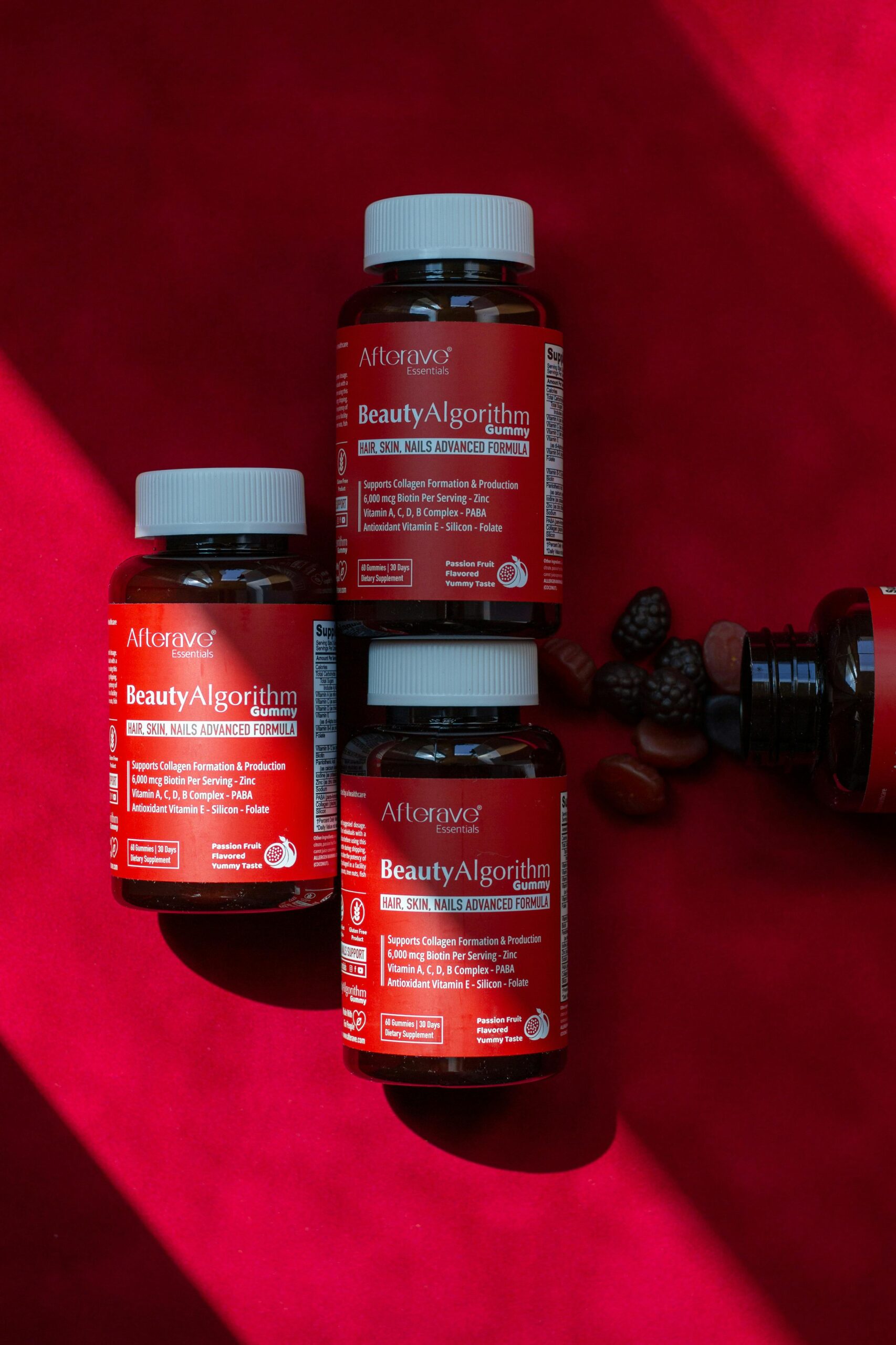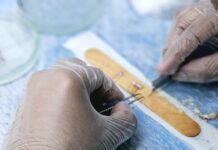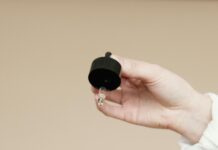Are you curious about the role of biotin after transplant surgery and how this powerful vitamin can transform your recovery journey? Many patients overlook the essential benefits of biotin, but did you know this nutrient plays a crucial role in accelerating healing and boosting overall health post-transplant? Biotin, often called vitamin B7, supports skin regeneration, hair growth, and nerve function – all vital elements for transplant recipients. Wondering why doctors and nutritionists emphasize biotin supplementation after organ transplant? It’s because biotin helps reduce inflammation and strengthens the immune system, which is critical when your body is adjusting to a new organ. But how much biotin do you really need, and can it prevent common complications after transplant surgery? This article uncovers the truth behind biotin’s role, providing you with insider tips on incorporating biotin-rich foods and supplements during post-transplant recovery. If you want to enhance your healing process naturally and avoid potential pitfalls, learning about biotin’s impact is a must. Stay tuned as we reveal the science-backed benefits of biotin, answer frequently asked questions, and guide you on maximizing your transplant success with this underrated vitamin. Don’t miss out on unlocking the secrets to a faster, healthier recovery with biotin!
How Biotin Boosts Recovery After Transplant Surgery: Top 5 Essential Benefits
When people think about recovering from hair transplant surgery, they often focus on the surgical techniques or aftercare instructions. But one critical element, often overlooked, is nutrition—specifically, the role of biotin in boosting recovery after transplant surgery. Biotin, also known as vitamin B7, plays a vital role in hair health and wound healing, making it an essential nutrient for those who recently had a hair transplant. Let’s dig into how biotin helps recovery and the top 5 benefits that makes it a must-have during this crucial period.
What Is Biotin and Why It Matters After Hair Transplant?
Biotin is a water-soluble vitamin belonging to the B-complex family. It is famous for improving hair, skin, and nail health. It’s found naturally in foods like eggs, nuts, whole grains, and certain vegetables. Historically, biotin deficiency is rare but when it happens, symptoms include hair thinning and skin rashes.
After a hair transplant surgery, the scalp undergoes trauma and needs proper nutrients to heal and support new hair growth. Biotin helps in this process by assisting in keratin production — keratin is the protein that forms hair strands. Without enough biotin, the new hair follicles might struggle to grow strong, healthy hair.
Top 5 Essential Benefits of Biotin for Post-Transplant Recovery
Here’s a quick overview of why biotin became so important right after hair transplant surgery:
Promotes Hair Growth
Biotin helps stimulate hair follicles to produce thicker and healthier hair strands. This is crucial because transplanted follicles need all the support they can get to thrive in their new location.Speeds Up Wound Healing
The surgery causes tiny wounds on the scalp. Biotin aids the body in repairing these wounds faster, reducing inflammation and minimizing the risk of infection.Strengthens Hair Structure
Hair after transplant can sometimes be fragile. Biotin enhances the structural integrity of hair by increasing keratin production, so hair is less prone to breakage.Improves Scalp Health
A healthy scalp is foundation for healthy hair. Biotin supports scalp skin by improving moisture retention and reducing dryness or flakiness, which are common issues after surgery.Supports Overall Nutritional Balance
Transplant recovery is demanding on the body’s resources. Biotin assists in metabolism of fats, carbohydrates, and proteins — all needed for tissue regeneration and energy production.
The Role of Biotin After Transplant Surgery: What Science Says
Studies on biotin’s effect on hair health have been mixed but largely positive in cases of deficiency or poor hair condition. While biotin alone doesn’t guarantee hair regrowth, it’s considered an important part of a comprehensive post-transplant care plan. Doctors often recommend biotin supplements alongside other vitamins like vitamin D, zinc, and iron for best results.
Biotin in Comparison With Other Hair Growth Vitamins
| Vitamin/Nutrient | Role in Hair Health | Post-Transplant Importance | Food Sources |
|---|---|---|---|
| Biotin (B7) | Keratin production, scalp health | High – supports hair regrowth | Eggs, nuts, sweet potatoes |
| Vitamin D | Follicle cycling and immune function | Medium – aids follicle activity | Fatty fish, fortified milk |
| Zinc | Wound healing, protein synthesis | Medium – supports tissue repair | Meat, seeds, legumes |
| Iron | Oxygen transport to hair follicles | High – prevents hair thinning | Red meat, spinach, lentils |
| Vitamin E | Antioxidant, scalp circulation | Low to Medium – improves blood flow | Nuts, seeds, green leafy vegetables |
It’s clear from this table that biotin plays a critical role but works best when combined with other nutrients.
Practical Tips to Incorporate Biotin After Your Hair Transplant
- Eat Biotin-Rich Foods Daily: Eggs (especially yolks), almonds, spinach, and sweet potatoes are great natural sources.
- Consider Supplements: If your diet lacks variety, consult your doctor about biotin supplements. Dosages usually range from 30 to 100 micrograms daily for adults.
- Stay Hydrated: Water supports nutrient absorption and overall scalp health.
- Avoid Excessive Heat or Chemicals: These can damage new hair and counteract the benefits of biotin.
- Follow Your Clinic’s Aftercare Instructions: Nutrition is just one part of recovery; proper wound care and avoiding sun exposure are equally important.
Some Historical Context on Biotin and Hair Care
Biotin was first identified in the 1930s when researchers noticed that a deficiency caused hair loss and dermatitis in animals. Later, it became popular in the beauty industry during the late
The Science Behind Biotin’s Role in Healing Post-Transplant Patients
When people think about hair transplant surgery, they usually focus on the procedure itself—the grafts, the technique, and the results. But what happens after the surgery is just as important, if not more. One crucial aspect that often gets overlooked is the role of nutrition and supplements in helping the scalp heal and hair to regrow effectively. Among these nutrients, biotin stands out as a popular choice. But does biotin really help post-transplant patients? Let’s dive deep into the science behind biotin’s role in healing post-transplant patients and why it might be an essential ally in your recovery journey.
What is Biotin and Why People Talk About It?
Biotin, also known as Vitamin B7, is a water-soluble vitamin that is part of the B complex group. It plays a significant role in converting food into energy and is essential for the health of your skin, hair, eyes, liver, and nervous system. Historically, biotin became famous for its supposed ability to improve hair and nail strength, although scientific studies have been somewhat mixed about its effectiveness in people who already have normal biotin levels.
Despite that, biotin supplements have been widely used for decades, especially in the beauty and health industry. The reason? Biotin is involved in synthesizing fatty acids, amino acids, and glucose, all of which are important for cell growth and repair. After a hair transplant, the scalp is essentially healing from multiple tiny wounds, and healthy cell regeneration becomes paramount.
The Role Of Biotin After Transplant Surgery: Essential Benefits Revealed
After hair transplant surgery, the scalp undergoes stress and inflammation due to the harvesting and implantation of hair follicles. This kind of trauma requires not only careful medical aftercare but also proper nutritional support. Biotin is believed to help in several ways:
- Supports Keratin Production: Hair is primarily made of keratin, a fibrous protein. Biotin assists in the production of keratin, which may enhance the strength and thickness of new hair growth.
- Improves Scalp Health: A healthy scalp is critical for hair follicle survival. Biotin contributes to maintaining the skin’s integrity and moisture balance, preventing dryness and flakiness that could hamper healing.
- Speeds Up Cell Regeneration: Post-transplant, the body needs to generate new cells quickly to replace damaged tissue. Biotin acts as a coenzyme in several metabolic pathways that promote cell growth and repair.
- Reduces Hair Shedding: Some patients experience shedding of transplanted hair initially. While this is normal, adequate biotin levels might help minimize excessive hair loss by strengthening hair roots.
Scientific Insights: What Research Says About Biotin and Hair Growth
Scientific evidence on biotin’s effectiveness specifically for hair transplant patients is still emerging. Most studies focus on hair loss conditions like alopecia or brittle nails, rather than post-transplant healing. However, there is some relevant information worth noting:
- Biotin deficiency is rare but can cause hair thinning and skin problems. Supplementing biotin in deficient individuals has shown to improve hair quality.
- A 2017 study highlighted that biotin, combined with other vitamins and minerals, might improve hair density over time.
- No direct clinical trials have conclusively proven that biotin alone speeds up transplant recovery or hair regrowth, but its role in cell metabolism suggests a supportive function.
Comparing Biotin With Other Nutrients For Post-Transplant Care
It’s important not to see biotin as a miracle cure on its own. Hair transplant recovery is multifactorial. Here’s a quick comparison of biotin with other important nutrients:
| Nutrient | Role in Post-Transplant Recovery | How It Works |
|---|---|---|
| Biotin (Vitamin B7) | Supports keratin production and cell metabolism | Helps hair and skin repair |
| Zinc | Essential for immune function and wound healing | Reduces inflammation, promotes healing |
| Vitamin C | Antioxidant, collagen synthesis | Strengthens skin and blood vessels |
| Vitamin E | Antioxidant properties | Protects cells from oxidative damage |
| Iron | Oxygen transport to tissues | Prevents hair thinning caused by anemia |
Each nutrient plays a unique role, and often a combination is recommended to support optimal healing and hair growth.
Practical Tips For Using Biotin After Hair Transplant
If you are considering biotin supplements after your hair transplant, here are some practical suggestions:
- Consult your doctor before starting supplements, especially if you have underlying health conditions.
- Use biotin as part of a balanced vitamin regimen that includes zinc, vitamin C, and iron.
- Dosage varies, but typical supplements range from 2,500 mcg to 10,000 mcg daily. Avoid mega-doses without professional advice.
- Focus also on a healthy diet rich in eggs, nuts, whole grains, and vegetables, which naturally contain bi
Can Biotin Improve Hair and Skin Health After Organ Transplant? Expert Insights
Can Biotin Improve Hair and Skin Health After Organ Transplant? Expert Insights
Organ transplant is a life-changing procedure that often come with many challenges during recovery. One of the concerns patients frequently ask about is how to support their hair and skin health post-surgery. Biotin, a popular supplement known for its role in hair and skin nourishment, is often brought up in these conversations. But can biotin really improve hair and skin health after organ transplant? Here we will explore the science, expert opinions, and practical tips to help you understand the role of biotin in the unique context of transplant recovery.
What is Biotin and Why It Matters?
Biotin, also called vitamin B7 or vitamin H, is a water-soluble vitamin that plays an crucial part in maintaining healthy hair, skin, and nails. It helps the body convert food into energy by supporting enzymes that break down fats, carbohydrates, and proteins. It also contribute to strengthening keratin, the protein that makes up hair, skin, and nails.
Historically, biotin was discovered in the early 20th century when scientists noticed that egg white injury caused hair loss in animals. Later on, they identified biotin as the missing nutrient that reversed this effect. Since then, biotin supplements have gained popularity for people experiencing hair thinning or skin problems.
The Role of Biotin After Transplant Surgery: Essential Benefits Revealed
After an organ transplant, many patients face side effects like hair thinning, brittle nails, and dry skin. These symptoms are often caused by the immunosuppressant drugs used to prevent organ rejection. These medications can interfere with nutrient absorption and overall metabolism, leading to deficiencies that impact hair and skin health.
Here are some ways biotin might help after transplant surgery:
- Supports Keratin Production: Biotin helps strengthen keratin structure, which may reduce hair brittleness and promote healthier skin.
- Enhances Metabolism: By improving enzyme activity, biotin can support better processing of nutrients necessary for tissue repair.
- May Improve Scalp Health: Biotin deficiency sometimes leads to scalp issues like dandruff or dermatitis; supplementation could alleviate these symptoms.
- Supports Nail Strength: Many transplant patients notice nail changes; biotin is known to improve nail thickness and reduce breakage.
However, it’s important to remember that biotin alone is not a miracle cure. Hair and skin health after transplant depends on multiple factors, including overall nutrition, hydration, and medical management.
Expert Insights: What Doctors Say About Biotin Post-Transplant
Medical professionals often recommend a cautious approach when it comes to supplements after organ transplant. Although biotin is generally considered safe, it can interact with certain lab tests and medications, potentially complicating post-transplant care.
Dr. Sarah Jensen, a dermatologist specializing in transplant patients in New York, explains:
“Biotin supplementation can be beneficial if a patient shows signs of deficiency, but indiscriminate use without medical supervision is not advisable. It’s crucial to evaluate each patient’s nutritional status and coordinate with transplant teams.”
Similarly, transplant nutritionist Michael Lee notes:
“Optimal hair and skin recovery after organ transplant requires a balanced diet rich in vitamins and minerals. Biotin is one piece of the puzzle, but patients should also focus on protein intake, zinc, and antioxidants.”
Biotin Sources: Natural vs Supplement
Patients wondering how to include biotin in their post-transplant diet have two main options: natural food sources or supplements. Each has its pros and cons:
Natural sources of biotin:
- Eggs (especially yolks)
- Nuts like almonds and walnuts
- Legumes such as soybeans and peanuts
- Whole grains and cereals
- Leafy green vegetables
Advantages:
- Provide other nutrients beneficial for healing
- Less risk of overconsumption
Supplements:
- Available in various doses, often combined with other vitamins
- Convenient for those with dietary restrictions or appetite issues
Disadvantages:
- Risk of excessive intake leading to false lab results
- Possible interactions with medications
Comparing Biotin With Other Nutrients Important After Transplant
| Nutrient | Role in Hair and Skin Health | Common Sources | Notes for Transplant Patients |
|---|---|---|---|
| Biotin (B7) | Strengthens keratin, supports metabolism | Eggs, nuts, legumes, leafy greens | Supplement cautiously, monitor levels |
| Zinc | Promotes wound healing, reduces inflammation | Meat, shellfish, seeds, nuts | Important for immune function, watch dosage |
| Vitamin C | Antioxidant, collagen synthesis | Citrus fruits, peppers, strawberries | Helps skin repair, supports immune system |
| Protein | Builds hair follicles and skin tissue | Meat, fish, dairy, legumes | Critical for recovery, must be adequate |
| Vitamin E | Protects skin from oxidative damage |
Why Biotin Supplementation is Crucial for Immune Support After Transplant Surgery
Why Biotin Supplementation is Crucial for Immune Support After Transplant Surgery
When someone undergoes a transplant surgery, whether it’s a hair transplant or an organ transplant, the body goes through a lot of stress. Healing process isn’t simple and fast, and immune system got to work extra hard to fight off infections and support tissue repair. One nutrient that often gets overlooked but plays a vital role in this recovery phase is biotin. You might have heard about biotin for hair growth, but its importance goes way beyond just making your hair look good. This article dives into why biotin supplementation is crucial for immune support after transplant surgery, especially for patients in New York seeking a hair transplant clinic or other transplant services.
The Role Of Biotin After Transplant Surgery: Essential Benefits Revealed
Biotin, also known as vitamin B7, is a water-soluble vitamin that’s part of the B-complex group. It acts as a coenzyme in the body, helping metabolize fats, carbohydrates, and proteins — all vital for energy production. After transplant surgery, your body needs more energy to regenerate tissues and maintain immune function. Without enough biotin, these processes can be slow or inefficient.
Historically, biotin was discovered in the early 20th century as a growth-promoting factor for yeast and later recognized essential for humans in the 1940s. Since then, medical research found its role in supporting skin health, immune function, and even gene regulation. But in post-surgery patients, biotin’s impact on immune support becomes especially important.
Why Immune Support is Critical After Transplant Surgery
- Transplant surgery involves tissue injury, making the body vulnerable to infections.
- Immunosuppressive drugs used to prevent rejection weaken the immune system.
- Proper nutrient supply, including biotin, helps maintain immune cell functions.
- Faster wound healing reduces risk of complications.
Because biotin influences energy metabolism, its deficiency can impair white blood cell activity — these are the cells that combat pathogens. In simple terms, less biotin equals weaker defenses against germs.
How Biotin Helps The Immune System
Biotin participates in the synthesis of fatty acids and glucose which are essential fuel sources for immune cells. Without enough biotin, immune cells like macrophages and lymphocytes don’t work properly. Studies have shown that biotin deficiency can lead to reduced production of cytokines, molecules that help coordinate immune responses.
Moreover, biotin plays a role in regulating gene expression related to immune function. This means it influences which proteins get made that help fight infection and inflammation. People recovering from transplant surgery need this regulation to keep immune responses balanced — too little leads to infections, too much can cause rejection or inflammation.
Biotin Sources: Natural vs Supplementation
Getting enough biotin from diet alone can be tricky, especially after surgery when appetite might be low or dietary restrictions apply. Foods rich in biotin include:
- Egg yolks
- Nuts (almonds, walnuts)
- Legumes (peas, beans)
- Whole grains (oats, barley)
- Organ meats (liver)
But many transplant patients find supplements more reliable to maintain steady biotin levels. Supplements come usually in doses from 30 mcg to 10,000 mcg, depending on need. A healthcare professional should guide this.
Practical Tips for Biotin Supplementation After Transplant
Here’s a quick checklist for patients considering biotin after transplant surgery:
- Consult your doctor or transplant specialist before starting supplements.
- Choose biotin supplements from reputable brands to ensure purity.
- Combine biotin with a balanced diet rich in other B vitamins for synergistic effect.
- Monitor for any side effects or interactions with immunosuppressive medications.
- Maintain regular follow-up to check nutrient levels and adjust doses.
Comparing Biotin with Other B Vitamins Post-Transplant
| Vitamin | Primary Role | Importance Post-Transplant | Food Sources |
|---|---|---|---|
| Biotin (B7) | Metabolism of fats, carbs, proteins | Supports immune cell function, wound healing | Eggs, nuts, legumes, whole grains |
| B6 | Amino acid metabolism | Enhances antibody production | Poultry, fish, potatoes |
| B12 | DNA synthesis, red blood cell formation | Prevents anemia, supports immunity | Meat, dairy, fortified cereals |
| Folate | Cell division, DNA synthesis | Important for tissue repair | Leafy greens, beans, citrus fruits |
While all B vitamins are important, biotin’s unique role in energy metabolism and gene expression makes it especially valuable after transplant surgery.
Real-Life Example: Biotin in Hair Transplant Recovery
People who undergo hair transplant surgery in New York often focus on biotin because it’s linked to hair health. But the vitamin’s benefit
Step-by-Step Guide: Incorporating Biotin Into Your Post-Transplant Nutrition Plan
When you just gone through a hair transplant surgery, your focus often shifts to how fast your hair will grow back and look natural again. But one important thing that many people overlook is how crucial nutrition becomes in helping your new hair follicles to thrive. Among the many vitamins and supplements, biotin stands out as a superstar in supporting hair health. This article will guide you through a step-by-step plan on how to incorporate biotin into your post-transplant nutrition, and also explain why biotin plays such an essential role after transplant surgery.
What Is Biotin and Why It Matters?
Biotin, also known as vitamin B7, is a water-soluble vitamin that belongs to the B-complex group. Historically, biotin was first discovered in the early 20th century when researchers noticed that animals fed with raw egg whites developed hair loss and skin rashes. The condition was later found to be caused by a deficiency in biotin. This vitamin is vital for our body because it helps convert food into energy and plays a key role in maintaining healthy hair, skin, and nails.
For people recovering from hair transplant surgery, biotin becomes more than just a vitamin. It acts as a building block for keratin, the protein that makes up your hair strands. Without sufficient biotin, your new hairs may become weak or brittle, which could compromise the success of the transplant.
The Role Of Biotin After Transplant Surgery: Essential Benefits Revealed
Right after the surgery, your scalp needs to heal and your hair follicles to establish themselves. Here are some ways biotin helps in this process:
- Strengthens hair follicles, reducing shedding after surgery
- Encourages new hair growth by supporting keratin production
- Improves scalp health by reducing inflammation and dryness
- Enhances overall hair texture and thickness over time
- Supports metabolism, which is essential for nutrient absorption
Compared to other vitamins like vitamin D or zinc, biotin specifically targets hair health more directly. For example, zinc is great for immune function, but without biotin, your hair may not grow as strong post-transplant.
Step-By-Step Guide: How To Include Biotin Into Your Post-Transplant Nutrition
Incorporating biotin into your diet and lifestyle after transplant surgery isn’t complicated, but it requires some planning and consistency.
Step 1: Consult Your Doctor or Nutritionist
Before adding any supplements, always discuss with your healthcare provider. They might check your current biotin levels or recommend the right dosage for you.
Step 2: Choose Biotin-Rich Foods
Natural sources of biotin should be your first choice. These foods not only provide biotin but also other important nutrients.
Examples of biotin-rich foods:
- Eggs (especially yolks)
- Nuts and seeds (almonds, walnuts, sunflower seeds)
- Sweet potatoes
- Spinach and other leafy greens
- Salmon and other fatty fish
- Avocados
Step 3: Consider Biotin Supplements If Needed
If your diet lacks enough biotin, supplements can help. The typical recommended daily amount ranges from 30 to 100 micrograms for adults, but post-surgery needs might be higher. However, avoid mega-doses without professional advice.
Step 4: Combine Biotin With Other Nutrients
Biotin works best when taken with a balanced intake of vitamins like B5 (pantothenic acid), B12, vitamin C, and minerals like iron. This synergy supports overall hair follicle health and function.
Step 5: Monitor Your Progress
Keep track of any changes in your hair texture, thickness, and shedding. Improvement may take a few months, so patience is key.
A Quick Comparison Table: Biotin vs Other Hair-Related Nutrients
| Nutrient | Primary Role | Benefit Post-Transplant | Food Sources | Dosage Notes |
|---|---|---|---|---|
| Biotin (B7) | Keratin production, energy metabolism | Strengthens hair and follicles | Eggs, nuts, spinach, fish | 30-100 mcg daily; higher with advice |
| Vitamin D | Supports immune system, hair follicle cycling | May improve hair growth cycles | Sunlight, fatty fish, fortified milk | 600-800 IU daily |
| Zinc | Cell growth and repair | Reduces inflammation in scalp | Meat, shellfish, legumes | 8-11 mg daily |
| Vitamin C | Antioxidant, collagen production | Supports scalp health | Citrus fruits, berries, peppers | 75-90 mg daily |
Practical Tips For Boosting Biotin Intake Post-Transplant
- Start your day with a breakfast rich in biotin like scrambled eggs with spinach and avocado slices
- Snack on a handful of mixed nuts or seeds during afternoon cravings
- Add sweet potatoes or salmon to your
Conclusion
In conclusion, biotin plays a significant role in supporting recovery after transplant surgery by promoting healthy skin, hair, and nail growth, which are often compromised due to medication side effects and the body’s healing process. Its involvement in energy metabolism also helps patients regain strength and vitality during the critical post-operative period. While biotin supplementation can be beneficial, it is essential for transplant recipients to consult their healthcare providers to ensure it fits safely within their overall treatment plan and does not interfere with immunosuppressive medications. Incorporating biotin-rich foods alongside a balanced diet can further enhance recovery outcomes. As research continues to evolve, understanding the role of nutrients like biotin offers promising avenues to improve patient care post-transplant. If you or a loved one are navigating life after transplant surgery, consider discussing biotin supplementation with your medical team to optimize healing and support long-term health.












